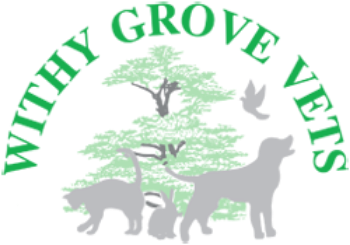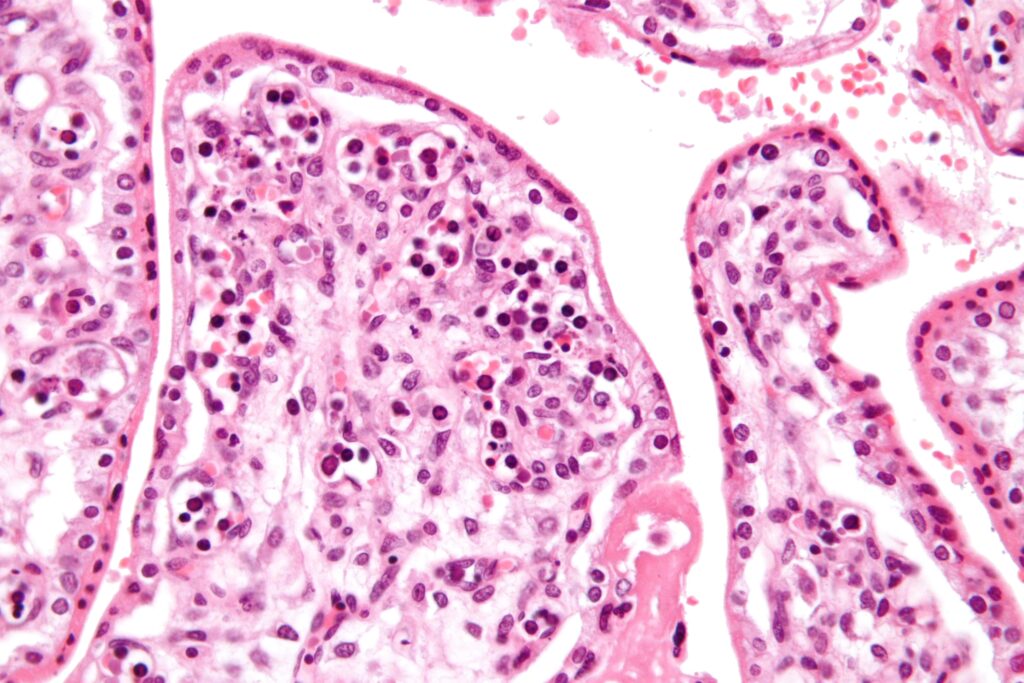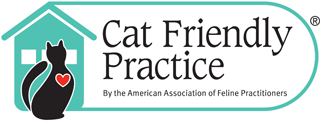Parvovirus is still common around Preston, we see cases on a regular basis. This is a distressing and often fatal disease so information about treating it and, more importantly, prevention is vital.
Cause
Parvovirus is (not surprisingly) caused by a virus, or to be more precise, several variants of a virus. It is a worldwide problem, the most serious strain is called CPV2 and this also has various variants which differ in distribution and seriousness. There is evidence that the virus is still developing new strains so we have to keep our vaccines up to date to ensure protection. CPV1 usually causes just mild diarrhoea.
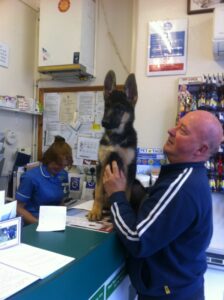
Symptoms
These include;
- Sudden onset diarrhoea and vomiting. Diarrhoea is often bloody.
- Raised temperature.
- Depression and dehydration.
- Death, particularly in young dogs. (Puppies 3-8 weeks old, and occasionally older dogs, can just die suddenly with no signs at all as the virus damages the heart muscle).
Diagnosis
We have an in-house (faeces) sample test at Withy Grove which gives us a diagnosis in minutes.
Transmission
Parvovirus is a very resistant virus. It can survive high temperatures, drying out, acids and can live for years in the environment. It is killed by many (but not all) disinfectants. Ask us for advice about what is best to use. There is evidence that cats can act as a reservoir of infection (one of the theories is that canine parvovirus actually began as a mutation of the cat parvovirus). Infection is by ingestion of virus from faeces or the environment. Infection is much more likely from the environment than from contact with an infected dog. This infection is usually via food or water contaminated by faeces containing the virus. Incubation period is from 2-6 days.
Disease Progression
The virus strips the lining from the gut wall which can then allow secondary bacterial infection to take hold. The virus can cross the placenta in pregnant bitches which can cause abortion or foetal infection. Massive amounts of virus are excreted in the faeces and after recovery this excretion can continue for up to 8 weeks so the dog is a source of infection to others). Damage to the gut wall can mean it takes months for a dog to fully recover.
Treatment
The mainstay of treatment is keeping the dog alive and assisting his or her immune system. This involves aggressive fluid therapy (in isolation of course to prevent infection spreading), drugs to help kill the virus, antibiotics against secondary infection, pain killers and medicines to control the vomiting and diarrhoea. We have isolation facilities and the nurses are trained in how to care for your dog and keep the isolation effective. Treatment can be costly and sometimes the disease is fatal whatever we do. Pet insurance covers treatment costs.
Prevention
VACCINATION!! The parvovirus vaccination is very effective and protection lasts for some years (at Withy Grove our vaccination protocol boosts parvovirus protection every 3 years). Any antibodies in the mothers milk will stop a vaccine working so it is vital that the last puppy vaccination is given after 10 weeks of age when these antibodies will have all gone. Prompt cleaning with a disinfectant that is effectives and removing faeces and vomit as quickly as possible helps.
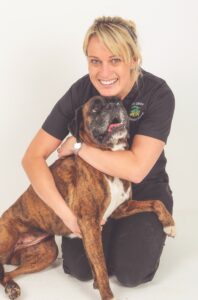
Parvovirus is a very important infection, the virus can change over time so revaccination with up to date strains is vital as is making certain all dogs are vaccinated. If the percentage of dogs vaccinated falls then the chance of our canine friends catching this distressing disease increases. Contact us to discuss this further.
